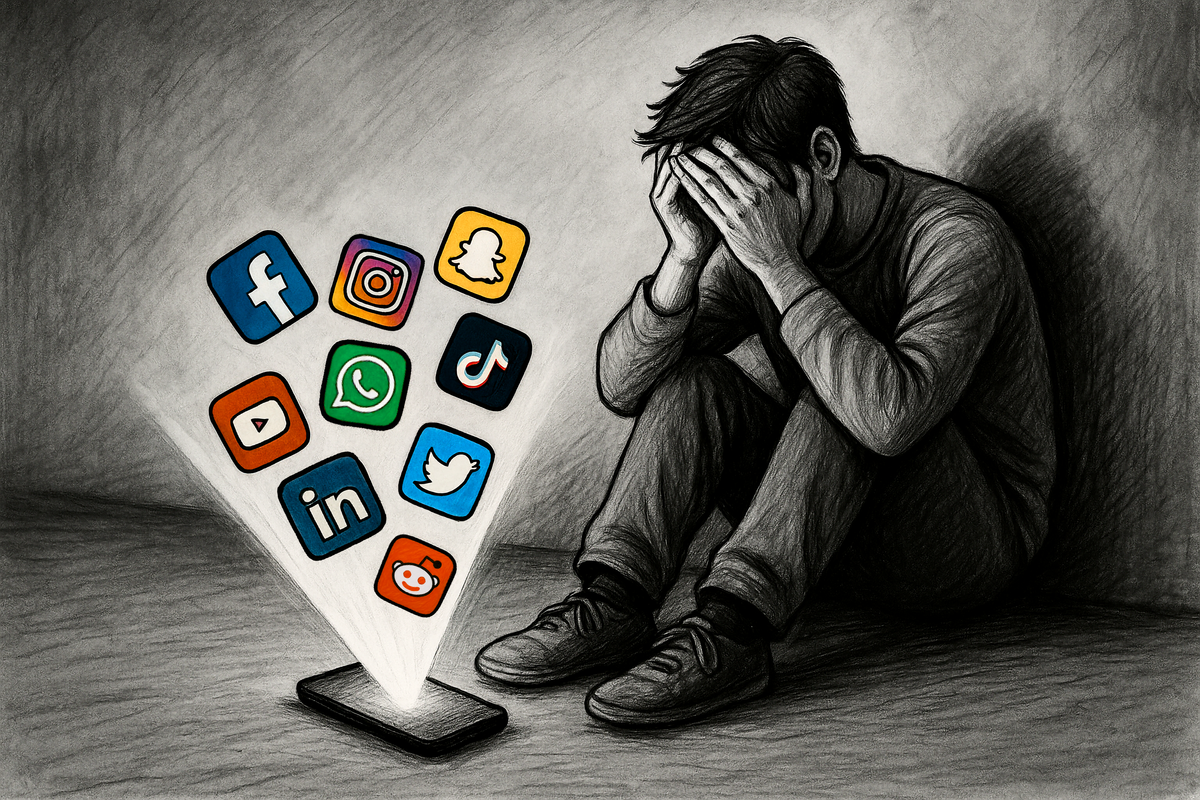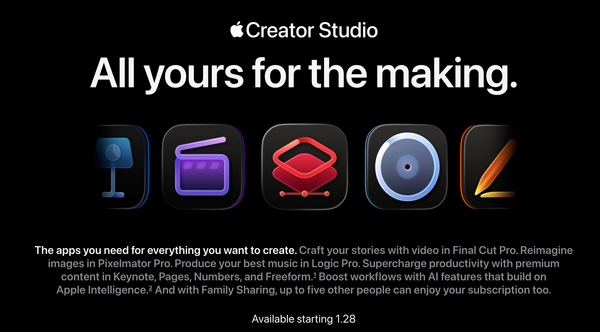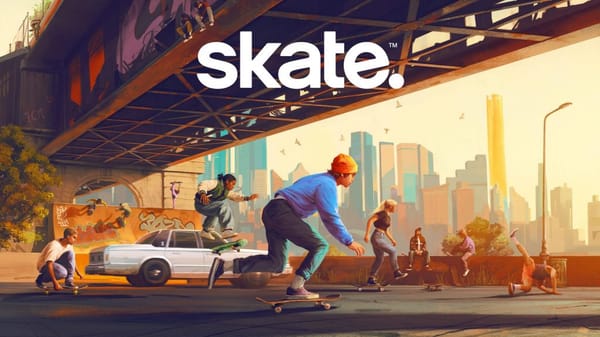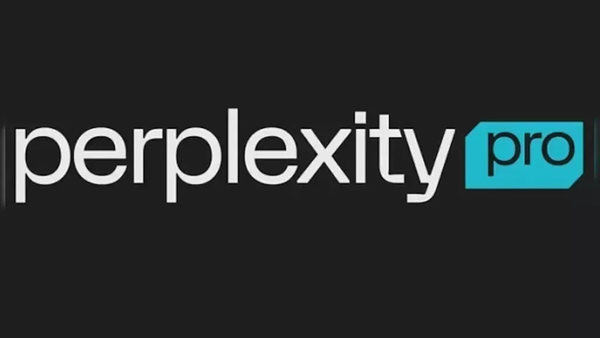We’re Finally Realizing Smartphones Are the Problem
We thought smartphones would connect us, but they’ve slowly taken more than they gave. Now, a quiet resistance is building.

We were promised connection.
What we got was noise.
After more than a decade of living through our screens, something’s shifting.
People are quietly stepping back, not in protest, just a slow retreat.
The cost of being constantly reachable and endlessly online is starting to show.
The phone was never the enemy.
Like any tool, it depends on how we use it.
But somewhere along the way, it stopped serving us and started shaping us, especially once social media took hold.
That’s when we began trading depth for speed, presence for performance.
Now there’s a quiet resurgence.
Old devices, vinyl records, and actual alarm clocks are showing up in people’s lives again.
Not because they want to relive the past, but because this kind of tech doesn’t beg for their attention.
Tired of distraction, of being split between too many tabs in life.
A way to put space between ourselves and a system that’s blurred every boundary between work and rest, attention and addiction, solitude and loneliness.
People aren’t disconnecting for novelty.
They’re doing it because something feels wrong.
And deep down, they always knew it.
The Digital Childhood That Changed Everything
Let’s start with an example: someone born in the year 2000.
Around age 10, they got their first smartphone.
By 20, they had spent their entire adolescence tethered to a device.
Every formative moment — friendships, insecurities, exploration, identity — filtered through a screen.
That person was told they were more connected than ever, but what they actually got was a curated feed of noise.
Social media wasn’t just a feature of the phone; it became the lens through which they saw the world.
It told them who to be, what to want, and how to think.
And for years, they believed it.
Now, in their mid-20s, that same person is looking around and realizing something feels off.
They don’t trust their attention span.
They feel less present in conversations.
Their memories are tagged more by timestamps than emotion.
And the deeper truth is sinking in: those were the years they were supposed to figure out who they were, not just what to post.
This isn’t just one person’s story. It’s a timeline shared by millions.
Smartphones went mainstream in the early 2010s.
A decade later, we’re finally waking up to what that meant.
We can now see the patterns.
Emotional burnout, shallow thinking, fractured relationships.
What started as convenience became dependency.
Originally, smartphones were sold to us as tools to make life easier, calculators, maps, and send quick messages.
But as they grew more powerful, the line blurred between helpful and harmful.
We stopped needing to learn things because we could look them up.
Why remember directions, formulas, or even opinions when everything is searchable?
Teachers once warned us not to rely on calculators.
No one warned us about a world where we wouldn’t need to think at all.
Smartphones promised access to the world.
And in some ways, they delivered.
We can stream documentaries about the Amazon Rainforest, watch street food vendors in Bangkok, and see glaciers in Antarctica melting in real time.
But that access came with a cost.
Why travel when you can consume the illusion of travel?
Why experience anything when the simulation feels good enough?
Still, it’s too easy to pin everything on the phone.
The real problem isn’t just the hardware.
It’s what came with it.
It’s social media.
And that’s where the deeper damage was done.
How Social Media Broke What It Promised to Fix
Social media didn’t just fail to deliver on its promises, it reversed them.
What was meant to enhance our social lives has left many feeling more isolated, insecure, and manipulated than ever.
It promised us connection, expression, and community.
What we got instead were comparison, performance, and addiction.
1. The Illusion of Connection
We were told these platforms would bring us closer.
That we could share, celebrate, and support one another more easily than ever before.
What it became was a distorted arena of competition, where every post is a subtle boast, and every scroll a subconscious comparison.
What should’ve been a place for mutual appreciation turned into a scoreboard.
Likes became currency.
Comments became status.
And gradually, we stopped sharing to connect, we started sharing to win.
This is where the cycle begins.
2. The Vicious Cycle of Social Media Usage
It starts with a post.
Something curated, meaningful, or impressive.
The goal? Validation.
The moment it lands, feedback rushes in, likes, reactions, and dopamine.
Then someone else sees it.
Maybe they weren’t feeling insecure that day, but now they start to feel different.
They compare.
They shrink. Suddenly, their own life feels inadequate.
That highlight reel becomes a reminder of what they lack.
So they post.
Not out of joy but out of the need to measure up.
To be seen. To be enough. To be Validated.
And the loop repeats, quietly reshaping how people perceive themselves and others.
But even if you never post, if you’re just there to scroll, you’re still in it.
You still compare.
You still absorb.
You still walk away feeling just a bit less sure of yourself.
3. The Trap: Keeping You Hooked
None of this is accidental.
These platforms aren’t designed to reflect reality.
They’re designed to hold your attention.
Whether you engage or not, you’re being tracked, profiled, and fed a constant stream of content meant to provoke, addict, and convert your time into ad dollars.
Outrage, envy, fear, and amusement, it’s all just fuel to keep you scrolling.
These companies don’t care what you’re feeling, as long as you’re still there.
Every moment you spend watching, comparing, or reacting is a win for them.
Because when a service is free, you are the product.
The Result: The Erosion of the Self
Everything social media promised has quietly collapsed in on itself.
Instead of creating stronger bonds, it left us more isolated.
Instead of giving us a platform for self-expression, it turned us into performers recycling whatever would generate engagement.
And instead of expanding our perspectives, it overwhelmed us with external input until we stopped trusting our own.
The more we consumed, the less we created.
The more we shared, the less we felt seen.
Original thought began to fade beneath the constant noise, with every opinion filtered through trends, influencers, and algorithms, all for the sake of a popularity contest, and for some, simply another attempt to make more money.
In a space where everything is curated and optimized for attention, even our thoughts began to feel borrowed.
Over time, we stopped asking ourselves what we actually believe or what we truly enjoy.
Instead, we began to measure the worth of our experiences through how they might be perceived online.
What began as a tool for connection has slowly reshaped how we view ourselves, others, and the world around us.
The Resurgence: A Return to Real Life
It’s no longer just a hunch or a passing trend, people are waking up.
Not just to the problem of social media, but to the broader dissatisfaction with modern tech as a whole.
Promises were made: more freedom, more convenience, more connection. But what we got instead was a system that’s more fragile, more bloated, and more controlling than ever.
Phones are more expensive than they’ve ever been, yet they break more easily, come packed with pre-installed bloatware, and rely on constant updates that often create more bugs than they fix.
Subscriptions are everywhere, from storage to apps to even basic tools, making ownership feel more like renting.
Cloud services dominate, yet at any time, your access can be revoked.
You don’t own anything anymore.
You’re just licensed into it, at the mercy of whatever terms they decide.
We were told this was progress.
That removing friction was the goal.
But in solving one problem, we created ten new ones.
That disillusionment has sparked a quiet rebellion.
Some are taking the software route — stripping their phones of anything non-essential, keeping only calls, maps, and messages, calling them dumbphones.
Others are turning to minimalist hardware entirely.
Devices like e-ink phones, Light Phones, and distraction-free tablets are carving out a niche for people who want the utility without the chaos.
Meanwhile, long-form writing is coming back into focus.
People are seeking signal over noise, substance over swipe.
They want articles, not summaries.
Words, not engagement bait.
Less AI, fewer algorithms, more intent.
The rebellion isn’t limited to software either.
Hardware is seeing its own shift.
Physical media is making a comeback, not just out of nostalgia, but as a rejection of constant digital friction.
CDs, DVDs, and personal film libraries are rising again, as people tire of losing access to their favorite shows at the whim of corporate contracts. (As we explored in this article.)
Pen and paper journaling is back.
Vinyl isn’t just a vibe, it’s an act of taking control.
Alarm clocks, analog cameras, even the humble wristwatch all signs of a growing desire to reclaim presence.
Right to repair.
Right to cancel.
The right to opt out entirely.
We’ve hit a breaking point.
For years, we accepted it all, trying to adapt to whatever the tech world threw at us.
But now, the inconvenience of the system is finally outweighing the convenience it once offered.
And when enough people start feeling the same friction, something shifts.
Even if many of these small acts, unplugging, downsizing, buying analog, are still being shared on social media, that doesn’t undermine their meaning.
If anything, it helps. Awareness spreads.
Discontent is no longer private. It’s communal.
The more people see it, the more they start to question their routines.
And in a strange twist, the very platforms that contributed to the problem are now amplifying the backlash.
Social media is, ironically, bringing people together not in celebration of itself, but in shared frustration with what it’s become.
The tool that once isolated us is now helping us recognize we’re not alone in wanting out.
It may still be early, but momentum is building.
So, what does this mean going forward?
Can we imagine a future without the tools we’ve come to rely on?
Or is it already too late?
Let me know what you think.



